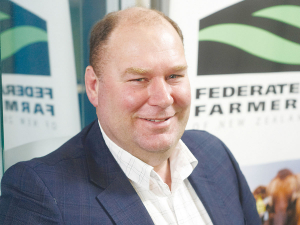A survey of nearly 1,200 farming businesses by Federated Farmers has shown that farmers are being squeezed by rising interest rates, with debt or other financial concerns eroding mental wellbeing.
The survey – conducted late last year – reports that since the previous survey in May, average mortgage interest rates had increased from 4.59% to 6.29% and average mortgage values increased 2.95% ($4.07m to $4.19m). The average level of overdraft was up $46,000 to $328,800 – with an average interest rate of 8.59%.
Federated Farmers president and economy spokesperson Andrew Hoggard said with big numbers like that it wasn’t a surprise that over 40% of farmers said they felt their mental wellbeing had been affected by their debt levels, interest rates, or other forms of financial pressure.
“It’s a reflection of the impact of official cash rate rises and while plenty of other Kiwi households and businesses are also feeling the pinch, many farms are carrying high debt,” he says.
MPI’s Situation Outlook for Primary Industries (SOPI) report, also released late last year, highlighted the boost to the economy from an estimated record $55 billion in food and fibre export returns by June next year. However, what didn’t make the headlines was that farm expenses jumped 15% in the September quarter compared to the September quarter 2021, with rises in fuel (53%), fertiliser (37%), debt servicing (34%) and weed and pest control (21%) leading the way.
The Fed’s survey also shows that farmer relationships with their bank continues to slip; just on 60% of farmers said they were very satisfied or satisfied with their bank relationship.
This was down 5 points from the survey six months earlier, and is the lowest since the biannual surveys began in 2015.
Some 17.4% of farmers perceived they had come under undue pressure over the past six months, up 3.5 points from May 2022, with sharemilkers leading the way (20.7%). Overall, banks’ conditions for lending became tougher rather than easier for all farm types, with 3.3% reporting easier conditions and 26.8% reporting tougher conditions.
Hoggard said that with satisfaction slipping, the banking sector might reflect on comments from respondents that personal contact from bank staff has been declining over recent years and most farmers are unhappy about it.
“High staff turnover, rural bank branch closures with consolidation of staff into bigger branches and regional centres, and Covid work policies (e.g. working from home and less able to travel) have all been cited as reasons for reduced personal contact,” he explained.



















